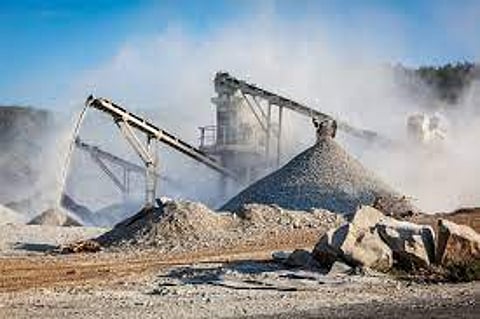
New Delhi: India is the third most polluted country in the world, reveals the 2023 World Air Quality Report by IQAir — which is a Swiss air quality monitoring group.
The air quality in the country has worsened since 2022 when it was ranked as the eighth most polluted nation.
Several Indian cities face significant air pollution issues, attributed to the rapid industrialization and insufficient enforcement of environmental laws.
Experts point to a combination of factors, including lax regulation of industries leading to non-compliance with pollution control measures and the rapid pace of construction as contributors to the escalating pollution levels.
The data highlights a noteworthy drawback of the rapid industrialization and development activities. Construction activities generate various types of pollution, including dust and particulate matter, emissions from equipment like bulldozers and trucks and volatile organic compounds (VOCs) released during painting and sealing.
These pollutants can harm the environment, ecosystems and human health by causing respiratory problems and other health issues.
As per the findings of the IQAir report, India’s average concentration of PM 2.5, fine particulate matter known to obstruct lungs and contribute to various illnesses, measured at 54.4 micrograms per cubic meter.
Globally, air quality is considered safe for breathing when PM 2.5 levels range between 12 to 15 micrograms per cubic meter; whereas, levels surpassing 35 micrograms per cubic meter are classified as unhealthy.
Delhi’s air quality surpassed that of India as a whole, with the city recording a PM2.5 level of 92.7 micrograms per cubic meter.
According to studies, traditional construction activities contributed to 30% of air pollution in the city of Delhi. During each winter when the air quality in the city and its surrounding areas reaches the severe category (AQI 401-450), restrictions are enforced on non-essential construction activities.
On November 2, 2023, due to the air quality deteriorating to the ‘severe’ category, the pollution control panel at the Centre prohibited non-essential construction activities in Delhi-NCR. This measure was taken because conventional construction methods play a significant role in contributing to air pollution.
According to a report by Business Today, Nikhil Bothra, Director, EPACK Prefab, a company offering sustainable and smart building solutions said, “Regular construction methods add a lot of pollution to cities, with about 30% of the dirty air in Delhi coming from dust at construction sites. Around the world, construction work is responsible for 25% to 40% of the greenhouse gases that cause climate change. So, when fine dust like PM2.5 gets into the air, it makes pollution even worse.”
It is not only Delhi, but the same is applicable to other cities as well. The IQAir data also states that the northern Indian city of Beguserai and the northeastern city of Guwahati were the top two most polluted cities in the country, with Guwahati from the northeast securing the second position.
Construction again plays a role. According to a local media outlet, the city’s pollution increase can be linked to several factors, such as growing construction projects causing more dust in the air and a rise in vehicle numbers.
Guwahati measured an average annual PM2.5 concentration of 105.4, surpassing the World Health Organization (WHO)’s recommended levels by over 10 times.
Assam Pollution Control Board Denies the Claim
The pollution control board of Assam reiterated the official statement put out by the department and denied to state anything else.
According to the official statement released by the board, “Our data contradicts the report of IQAir, whose data source is not known. As per the IQAir report, the average PM2.5 concentration in Guwahati for 2023 has been reported as 105.4 microgram per cubic meter, which is almost reported at 200% more than the actual recorded value by the government of India through Central Pollution Control Board and the state board.”
“The quality data generated from these monitoring stations are recorded by the Central Pollution Control Board, ministry of environment and forests. The technology used in these stations is approved by USEPA and the government of India,” it said.
It added, “The misleading news is creating panic among the people in the state. The PCBA hereby clarifies that there is no need to panic as the air pollution level in Guwahati is absolutely under control than reported level by the IQAir.”
What is IQAir?
IQAir is a privately owned Swiss company that specializes in air quality technology and offers solutions to combat airborne pollutants. They develop products for air quality monitoring and purification. Additionally, IQAir runs AirVisual, a platform providing real-time information on air quality.
The 2023 World Air Quality Report presents a global assessment of air quality data for that year. It summarizes PM2.5 air quality data from 7,812 cities spanning 134 countries, regions, and territories.
This data was collected from over 30,000 air quality monitoring stations operated by a variety of entities, including research institutions, governmental bodies, universities, non-profit organizations, private companies and citizen scientists.
You can also join our WhatsApp group to get premium and selected news of The Mooknayak on WhatsApp. Click here to join the WhatsApp group.